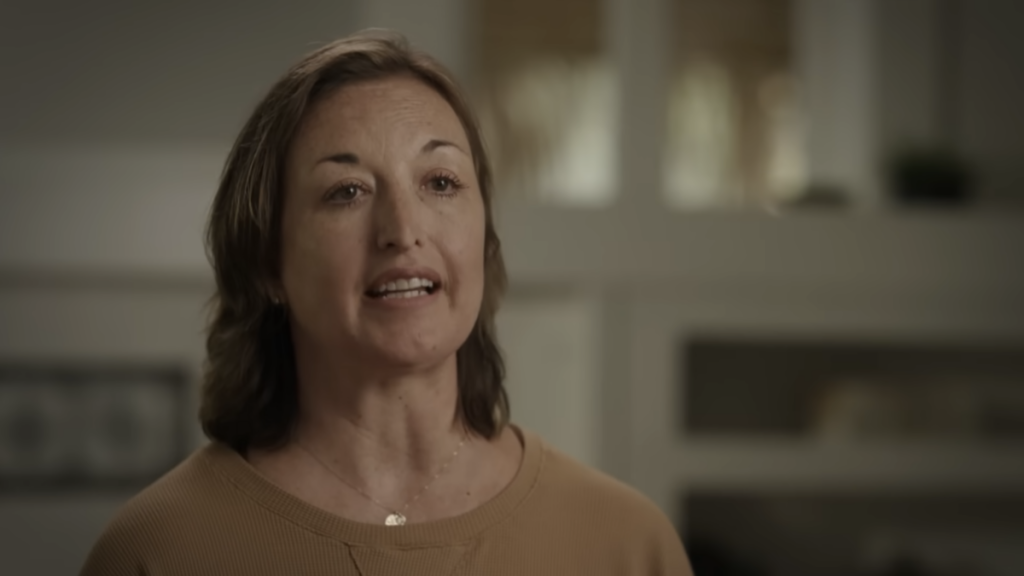Floridians this fall will vote on a constitutional “Amendment to Limit Government Interference with Abortion.” So authorities decided to interfere with free speech in an attempt to thwart voters from limiting the government’s right to interfere in reproductive decisions. The state threatened TV stations with criminal penalties for running an ad supporting the abortion initiative (known as Amendment 4).
A federal judge isn’t impressed. “To keep it simple for the State of Florida: it’s the First Amendment, stupid,” wrote U.S. District Judge Mark E. Walker in an October 17 opinion.
Walker temporarily enjoined Florida from attempting to censor the ad, granting the temporary restraining order request sought by Floridians Protecting Freedom, the group sponsoring Amendment 4.
“Importantly, this is a temporary restraining order, which is not generally appealable,” noted legal writer Chris Gender, author of the Law Dork newsletter, on BlueSky. “The preliminary injunction hearing is scheduled for Oct.. 29, and the state could appeal from that.”
Florida has been pulling out all the stops to try and stop Amendment 4 from passing. The state has been using taxpayer money to run ads in opposition to the amendment while trying to prohibit people from seeing an ad in support of it.
The ad in question is “political speech—speech at the core of the First Amendment,” notes Judge Walker. “And just this year, the United States Supreme Court reaffirmed the bedrock principle that the government cannot do indirectly what it cannot do directly by threatening third parties with legal sanctions to censor speech it disfavors. The government cannot excuse its indirect censorship of political speech simply by declaring the disfavored speech is ‘false.'”
This is the rub of the state’s argument against Floridians Protecting Freedom’s ad. It features a woman called Caroline who was diagnosed with brain cancer while pregnant with her second child. “The doctors knew that if I did not end my pregnancy, I would lose my baby, I would lose my life, and my daughter would lose her mom,” she says. “Florida has now banned abortion, even in cases like mine,” she ads.
The Florida Department of Health alleged that the ad constituted a “sanitary nuisance“—an act “by which the health or life of an individual, or the health or lives of individuals, may be threatened or impaired, or by which or through which, directly or indirectly, disease may be caused.” John Wilson, former general counsel with the department, sent letters to Florida TV stations saying that anyone found to be committing such a nuisance must remove it within 24 hours or face legal proceedings, including possible criminal proceedings.
While TV stations have a right to broadcast political ads, this does not include “false advertisements which, if believed, would likely have a detrimental effect on the lives and health of pregnant women in Florida,” Wilson told TV stations.
This is incorrect: TV station are not required to fact-check political ads before running them, nor to take down ads simply because they contain matters of disputed fact or statements that officials say are untrue. If this was the case, it would allow those in power to chill or shut down all sorts of political speech simply by asserting that the content of the speech was false.
“There is no ‘general exception to the First Amendment for false statements,'” noted Walker, citing the 2012 Supreme Court case United States v. Alvarez. “Falsity alone
does not bring speech outside the First Amendment absent some other traditionally recognized, legally cognizable harm,” since (Alvarez again) “it is perilous to permit the state to be the arbiter of truth.”
(For the record, Florida’s six-week abortion ban does contain exceptions for abortions needed to save the life or “a major bodily function” of a pregnant woman. But what types of scenarios fall under this exception is a matter of a discretion for doctors and the state.)
After Wilson’s letters went out, “at least one of the TV stations that had been running
Plaintiff’s advertisement stopped doing so,” noted Judge Walker.
Floridians Protecting Freedom responded by filing a complaint with the U.S. District Court for the Northern District of Florida, arguing that its First Amendment rights had been violated. The group asked the court to find that Wilson and Florida Surgeon General Joseph Ladapo had engaged in unconstitutional coercion and viewpoint discrimination and to issue a temporary restraining order against Lapado, who is in charge of Florida Department of Health, from taking further action against the ad or entities that broadcast it.
At an emergency hearing on October 17, the state claimed that it was enforcing a generally applicable law and thus immune from a First Amendment challenge.
“Nonsense,” wrote Judge Walker. “Defendant’s cases addressed a different issue—namely, whether enforcement of a law of general applicability against the press, which incidentally affects the press’s ability to gather and report the news, offends the First Amendment. That is not this case. The issue here is whether the State can censor core political speech under the guise that the speech is false and implicates public health concerns.”
Walker also rejected the idea put forth by the state that the Caroline ad constituted an “imminent threat” to public health. Speech is only an imminent threat “when it incites or produces imminent lawless action, or poses a clear and present danger by bringing about the ‘substantive evils’ that the government has a right to prevent, like obstacles to military efforts, obscenity, acts of violence, and charges to overthrow the government,” he wrote. “But there is no suggestion that Plaintiff’s ad would bring about the ‘substantive evils’ that the Supreme Court has recognized, nor is there any suggestion that Plaintiff’s ad would cause individuals to take any imminent lawless action.”
The judge ultimately determined that Floridians Protecting Freedom are likely to succeed on the merits of this case and issued a temporary restraining order against Florida’s Surgeon General, forbidding him “from taking any further actions to coerce, threaten, or intimate repercussions directly or indirectly to television stations, broadcasters, or other parties for airing Plaintiff’s speech, or undertaking enforcement action against Plaintiff for running political advertisements or engaging in other speech protected under the First Amendment.” The restraining order is valid until 5 p.m. on October 29. A preliminary injunction hearing is scheduled for earlier that day.
“Of course, the Surgeon General of Florida has the right to advocate for his own
position on a ballot measure,” wrote Walker. “But it would subvert the rule of law to permit the State to transform its own advocacy into the direct suppression of protected political speech.”
“This critical initial victory is a triumph for every Floridian who believes in democracy and the sanctity of the First Amendment,” Lauren Brenzel, campaign director of Yes on 4, said in a statement. “The court has affirmed what we’ve known all along: the government cannot silence the truth about Florida’s extreme abortion ban.”
The post ‘It’s the First Amendment, Stupid’: Federal Judge Slams Florida for Threatening TV Stations appeared first on Reason.com.







